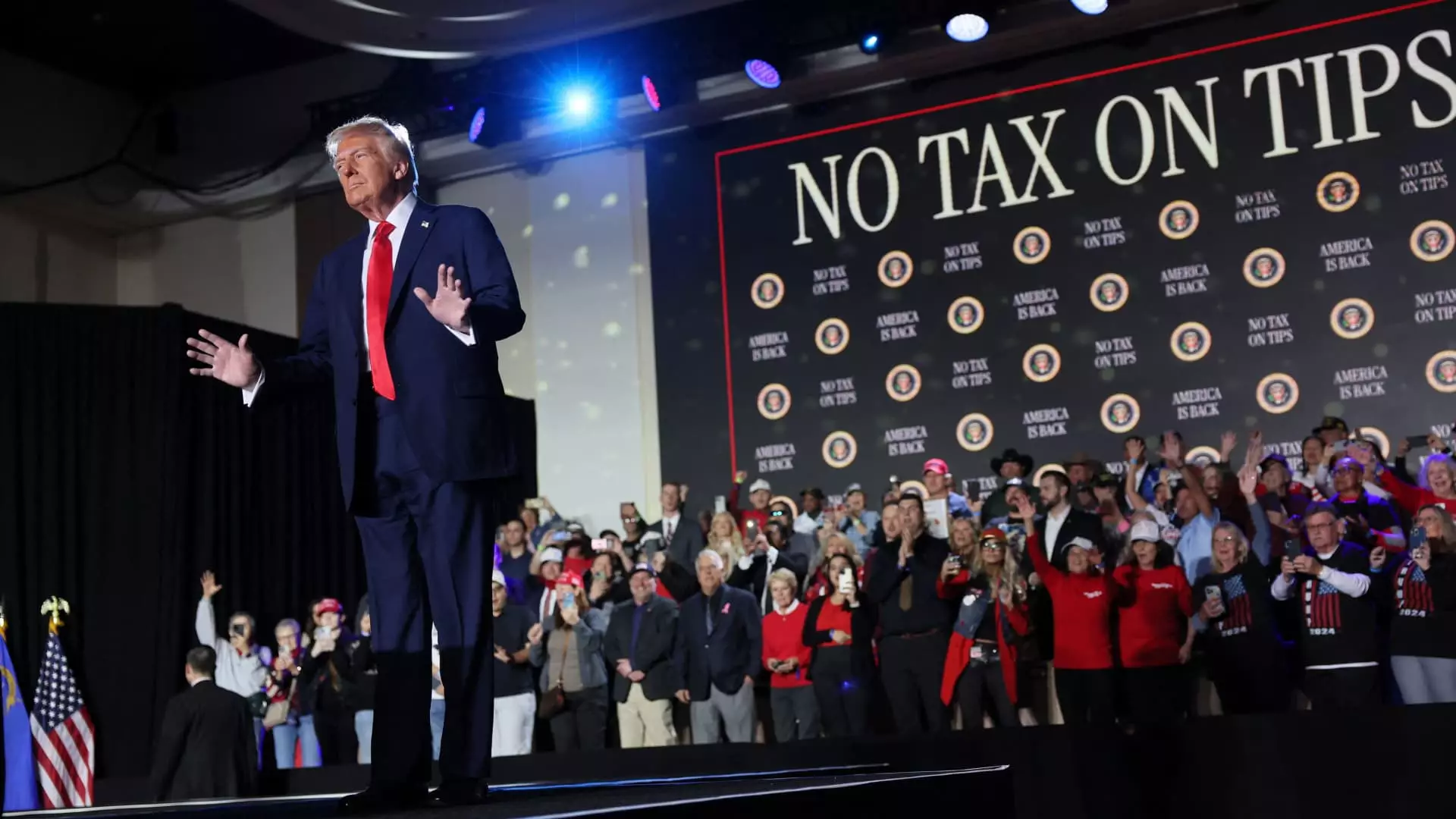In an unexpected turn of events, the Senate recently passed the No Tax on Tips Act, injecting new life into a contentious issue that has stirred discussions on federal tax reform. While this development may seem benign at first glance, it raises serious ethical and economic questions that deserve to be scrutinized. This act proposes an income tax deduction of up to $25,000 per year for certain workers who receive tips, a notion first heralded by former President Donald Trump during his 2024 campaign. With the bill already progressing through legislative channels, it’s imperative to assess whom it truly benefits and what ramifications it may impose on the workforce and economy at large.
Selective Benefits: Who Really Gains?
The most glaring issue with the No Tax on Tips Act is the apparent exclusivity of its advantages. While the bill aims to provide financial relief to workers earning tips, research indicates that the majority of these individuals are part-time employees who may not reap significant benefits from such tax exemptions. Furthermore, with a $160,000 earnings cap for 2025—subject to annual inflation adjustments—only moderate to middle-income earners may actually gain a substantial financial advantage. This creates a scenario where many low-income workers not only fail to qualify for the deduction but may also continue to be pushed into the shadows of the wage labor market where their contributions are marginalized.
This exclusion is troubling. For instance, a retail cashier earning the same amount as a waitress who receives tips will still face the burden of paying full income tax on her earnings. Such arbitrary distinctions in tax policy raise fundamental questions about fairness in an economic system that should ideally treat all labor equally, regardless of the industry or compensation structure involved.
An Inefficient Tax Code Reimagined
Moreover, the act invites scrutiny over the complexities it adds to an already convoluted tax code. By creating a separate classification for income earned through tips, we risk creating additional layers of bureaucracy and potential loopholes. Misclassification of income, a concern brought forth by experts, could become rampant as workers might manipulate their earnings to reap the benefits of this new exemption.
Incentivizing tipping as a core compensation model may hinder industries like retail from transitioning to more stable wage structures. Economically, this presents a paradox: the government ostensibly aims to provide relief for struggling workers, yet it inadvertently promotes dependency on an antiquated and often inequitable compensation method. The idea that one’s income can be categorized in such limited terms undermines the need for comprehensive wage reform and equal treatment across the board.
Political Dynamics: A Bipartisan Facade?
The bipartisan nature of this legislative push, trumpeted by figures like Senator Ted Cruz and supported by Democratic colleagues from Nevada, raises eyebrows regarding genuine intentions. One cannot help but suspect that this is more of a political maneuver rather than a sincere effort to uplift the working class. By framing the discussion around tips, lawmakers distract from the more profound systemic issues at play—namely, the overarching need for a living wage that ensures all workers can thrive without relying on gratuities.
Compelling arguments made by policy analysts emphasize that only a narrow subset of the workforce would benefit, while similar advocacy for wider legislative changes remains unaddressed. If the goal is truly to support hardworking Americans, we must look beyond superficial gestures and push for more substantial reforms that affect all layers of the working populace.
An Ethical Reckoning
As society grapples with the consequences of this legislation, it is crucial to confront the ethical implications of a tax policy that favors specific workers while neglecting a large segment of the workforce. Is it justifiable to grant tax exemptions based solely on the nature of one’s job? The No Tax on Tips Act, whilst perhaps well-intentioned, holds the potential to further entrench economic disparities.
The focus should not solely be on exempting one type of income, but rather on reforming the entire taxation landscape to reflect a just and equitable society. As we navigate the complexities of such policies, one must wonder: are we truly championing the cause of the worker, or merely glossing over the real issues in a façade of bipartisanship?

